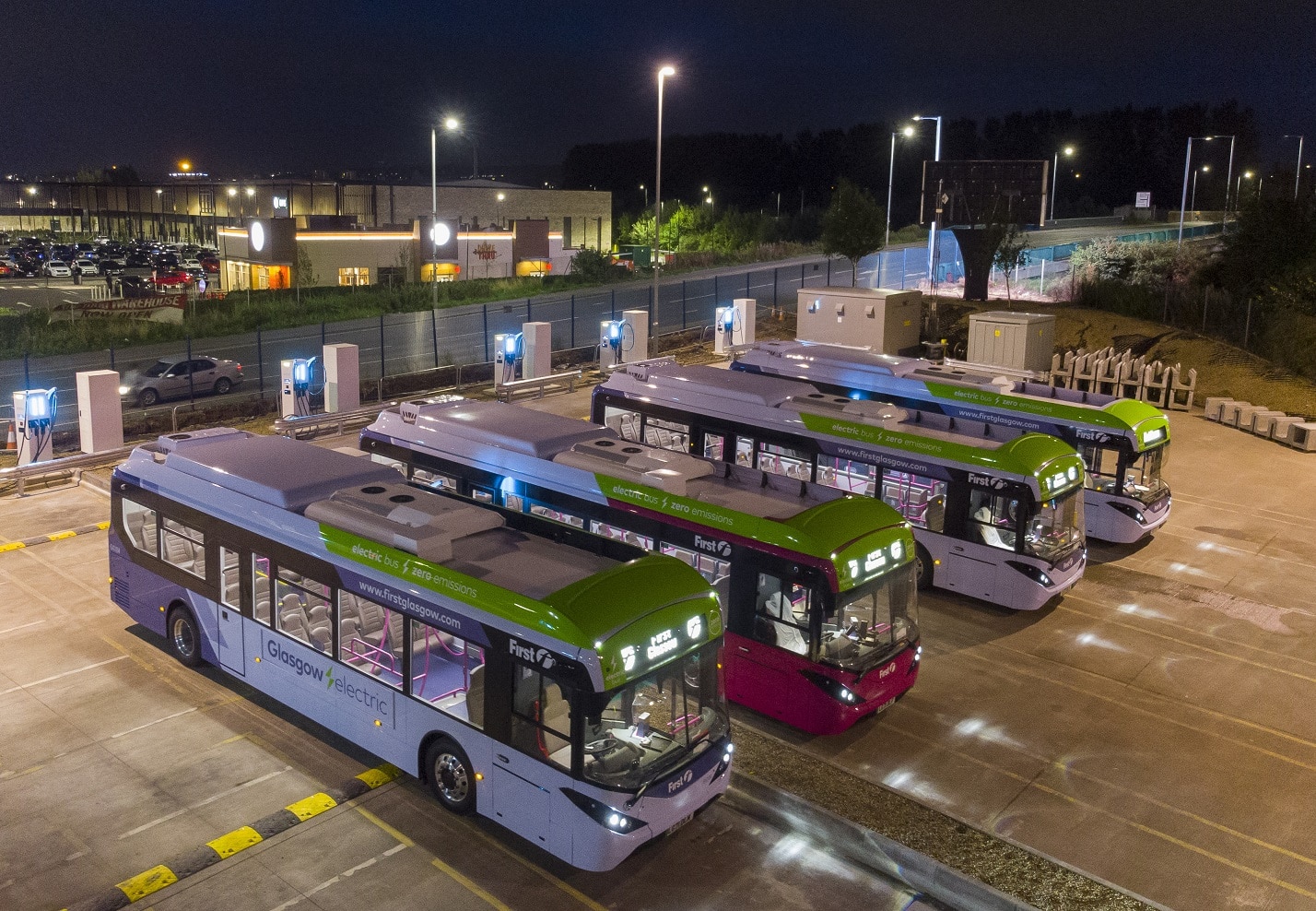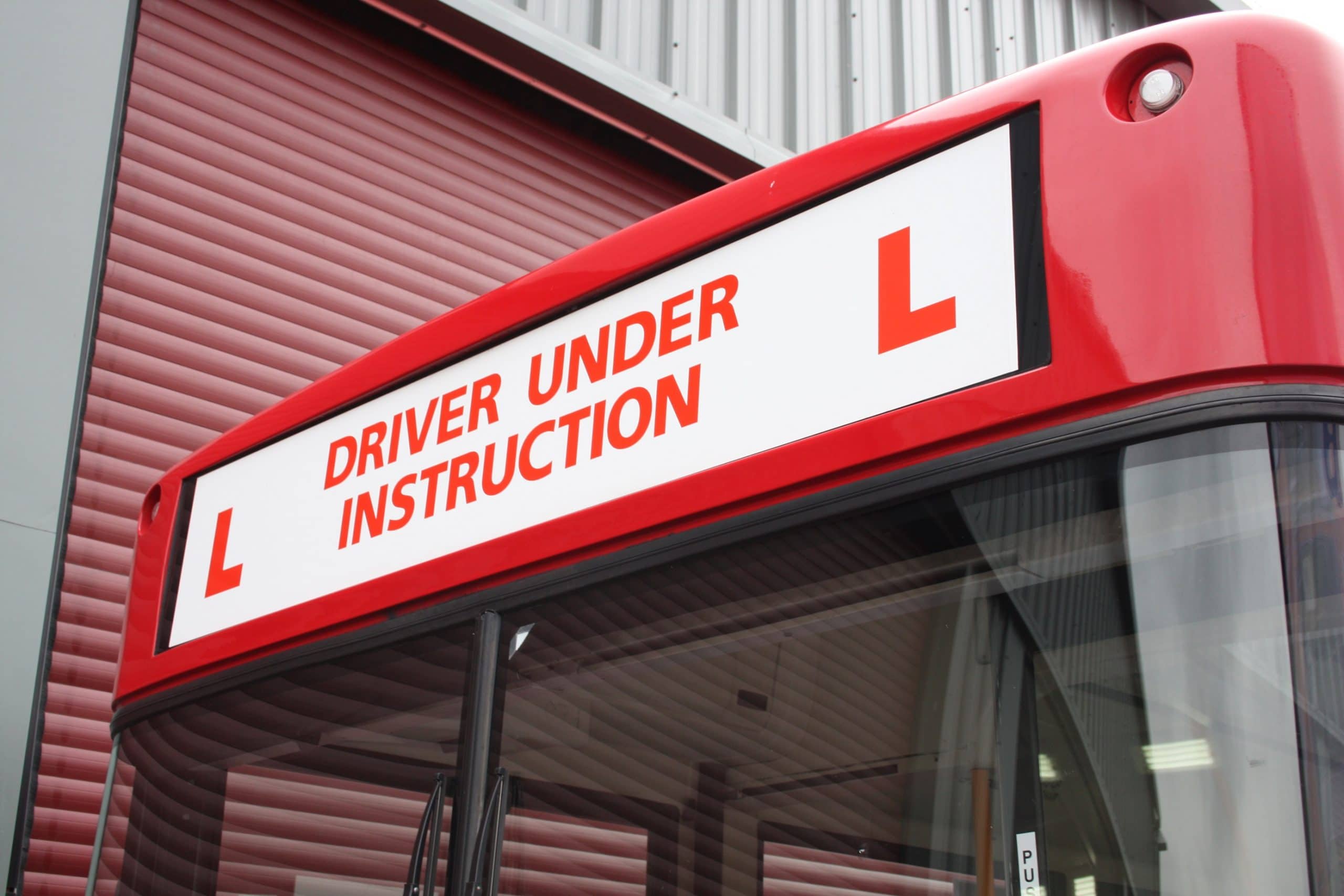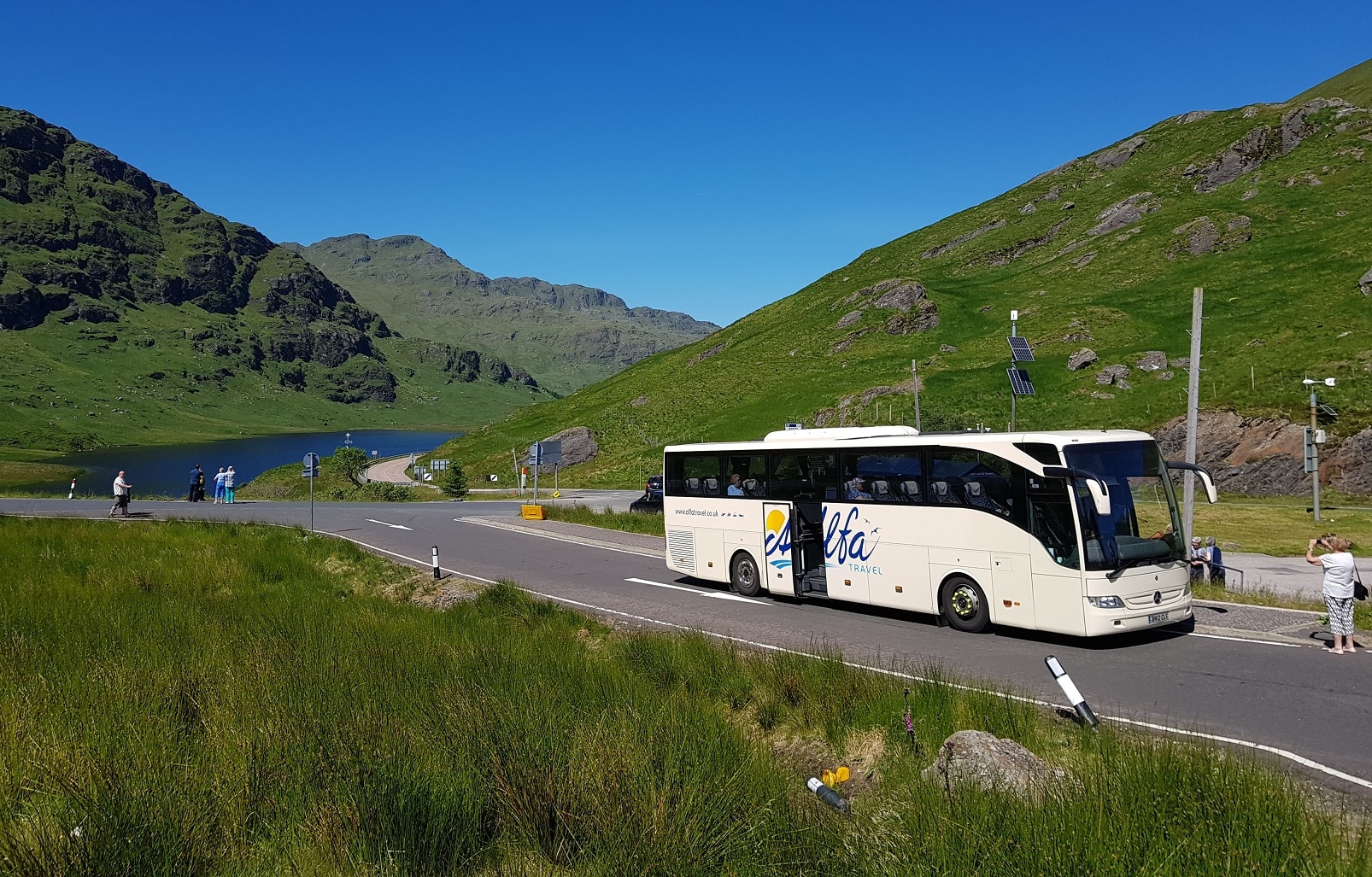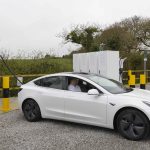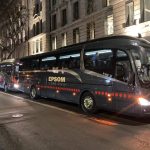First Glasgow has completed the first phase of the electrification of its Caledonia depot with the installation of 11 dual cable 150kW Heliox charging points. They will service the 22 battery-electric BYD ADL Enviro200EVs that are to arrive before the COP26 climate change conference in November. 69 further dual rapid chargers will follow in the second phase of the project.
Once that work is complete, Caledonia will be what First claims is the UK’s largest electric vehicle charging hub. The first Enviro200EVs of the batch of 22 were delivered recently. All are being part-funded by the first round of the Scottish Ultra Low Emission Bus Scheme (SULEBS).
They will be followed by a further 35 Enviro200EVs and 91 Enviro400EVs secured via the second round of SULEBS. When combined with two Enviro200EVs already in operation, that will give Caledonia a battery-electric fleet of 150. In total, First Glasgow will receive £28.2m from SULEBS. The operator is investing £35.6m in the project.
The new buses will ultimately replace Euro III vehicles and operate on 10 routes through Glasgow city centre. Electrification work at Caledonia will reduce the diesel consumption of First’s fleet in the city by 4.4m litres per year.
Completion of the remainder of the infrastructure work at Caledonia depot will be phased over the next 12 months. All 150 battery-electric buses will be introduced between now and early 2023, the operator says.
Heliox has supplied and commissioned the rapid charging units with installation completed by Powersystems UK. Each will be controlled via smart charging software to ensure that power is used in the most efficient way and to minimise the grid draw at peak times. That software will permit 89% of the depot’s battery-electric bus fleet to be charged at the same time. Their interiors will also be pre-heated during the charging process when required.




